Staff and Fellows
Director
Dr Julia Martínez-Ariño

Dr Julia Martínez-Ariño is Assistant Professor of Sociology of Religion at the University of Groningen. She received her PhD in Sociology from the Universitat Autònoma de Barcelona (Spain) in 2012. She was research fellow at the Max Planck Institute for the Study of Religious and Ethnic Diversity (Germany) and the Chaire Religion, culture et société at the Université de Montréal (Canada). She is research associate of the research unit ISOR-Research in Sociology of Religion (Spain), coordinator of the Research Network 34 Sociology of Religion of the European Sociological Association and member of the EUREL network. She has conducted research in Spain, Canada, Germany, France and Argentina. Her main research interests include the Spanish contemporary Jewish communities and their heritage practices, the governance of religious diversity, and apostasy and non-religion in Catholic-majority countries. She is the author of Urban Secularism: Negotiating Religious Diversity in Europe (Routledge, 2021) and co-editor of Urban Religious Events: Public Spirituality in Contested Spaces (Bloomsbury, 2021).
Deputy Director
Dr Manoela Carpenedo
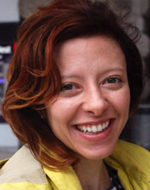
Dr Manoela Carpenedo is the Deputy Director of the Center of Religion, Conflict, and Globalization. She is an Assistant Professor and Marie Curie Fellow at the Faculty of Theology and Religious Studies at the University of Groningen. Social scientist and ethnographer, her work is dedicated to understanding religious dynamics in the global South. After her pioneering work among Zionist and Judaizing Christians in Brazil, Manoela is now researching how ‘Southern-led’ Pentecostalism intersects with political mobilization in the Lusophone South Atlantic. Manoela received her BA in Social Psychology from the Universidade Federal do Rio Grande do Sul (Brazil) and an MPhil and a Ph.D. in Sociology from the University of Cambridge. Before joining the University of Groningen, Manoela was a fellow at the Institute of Latin American Studies, School of Advanced Studies, University of London. Manoela is the author of 'Becoming Jewish believing in Jesus': the Judaizing Evangelicals in Brazil (Oxford University Press, 2021).
Researchers
Dr Brenda Bartelink
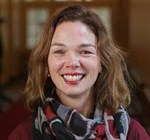
Dr Brenda Bartelink is fellow on religion, development and faith based organizations (FBO) and co-convenor of the research cluster Sexuality, Gender and Multiple Modernities. She is experienced in working with FBOs and civil society organizations around issues of development, gender, sexuality and HIV/AIDS, both from an academic and professional perspective. She is currently works as a senior project officer for the Knowledge Center on Religion and Development at Oikos Foundation and is finalizing her PhD research on Religion, Aids and Sexuality in the Development relations between FBOs in the Netherlands and East Africa.
Dr Kim Knibbe

Dr Kim Knibbe does qualitative research on religion and secularism in the Netherlands, particularly on the themes of gender and sexuality. She is currently the Director of the "Sexuality, Religion and Secularism" project, funded by the Netherlands Foundation for Research (NWO). Her previous research focused on Catholicism and spirituality in the Netherlands and on Nigerian Pentecostalism in Europe and the Netherlands. In addition to this work, she has published a series of theoretical and methodological reflections on the dilemmas of participant observation in studying religion.
Dr Joram Tarusarira

Dr Joram Tarusarira is Assistant Professor of Religion, Conflict and Peacebuilding at the University of Groningen, and former director of the CRCG. He studied Religious Studies and Philosophy in Zimbabwe, Peace and Post-Conflict Reconciliation studies in Ireland, and Adult Education and Community Development in Canada. Dr Tarusarira earned his PhD at the University of Leipzig (Germany), where he was a member of the German Research Foundation (DFG) Research Training Group ‘Religious Non-Conformism and Cultural Dynamics.’ He was a Postdoctoral Fellow at the Jena Center for Reconciliation Studies, Friedrich Schiller Universität Jena in Germany. His research interests are at the intersection of religion, violence, peacebuilding, conflict transformation and reconciliation, and climate-induced conflicts and security. He has a wealth of practical experience working with civil society organizations and social movements. He is the author of Reconciliation and Religio-political Non-Conformism in Zimbabwe , London, Routledge/Taylor and Francis, 2016 and co-editor of Religion and Human Security in Africa , London, Routledge/Taylor and Francis (2019).
Prof. Erin K. Wilson

Dr Erin K. Wilson is Associate Professor of Politics and Religion, Vice Dean and Director of Education of the Faculty of Theology and Religious Studies. Her research explores the intersection of religion and secularism with various global justice issues, including migration, gender equality, human rights and climate change. She is currently the co-chair of the Academic Advisory Network for the Transatlantic Policy Network on Religion and Diplomacy and from 2012-2017 she was the founding Director of the Centre for Religion, Conflict and Globalization. She holds a PhD in Political Science and International Relations from the University of Queensland, Brisbane, Australia. Her books include The Refugee Crisis and Religion (2016, Rowman and Littlefield International); After Secularism (2012, Palgrave) and the forthcoming Critical Religion in International Relations (2022, Routledge).
Fellows
Dr K. Francis Adebayo
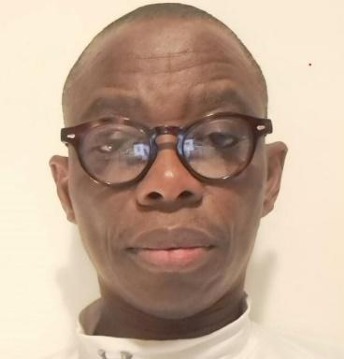
Dr K. Francis Adebayo is interested in the theology of social concerns and how this intersects with migration, ecology, and politics. His academic projects embrace missions, migration, ecology politics and public policy within the broader field of practical theology and religious studies.
Research Project Title
Ethnic Territories, Religious Boundaries and Christian Political Imagination in Democratic Nigeria
Prof. Richard Amesbury
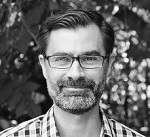
Professor Richard Amesbury is a philosopher and scholar of religion who works at the intersection of ethics, philosophy of religion, and political theory. He is Professor of Religious Studies and Director of the School of Historical, Philosophical and Religious Studies at Arizona State University.
Dr Gorazd Andrejč
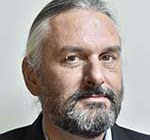
Dr Gorazd Andrejč is a philosopher of religion. His main work is in philosophy of religious language and communication as well as epistemology and phenomenology of religion. His particular interests are liberal religion, interreligious relations and disagreement, as well as religious-secular communication and disagreement, especially in Europe. Gorazd is Assistant Professor of Philosophy of Religion at Faculty of Theology and Religious Studies at the University of Groningen, and a Senior Researcher at the Institute for Philosophical Studies, Science and Research Centre of Koper, Slovenia. His recent book, co-edited with Daniel Weiss, is Interpreting Interreligious Relations with Wittgenstein: Philosophy, Theology, and Religious Studies .
Dr Helge Årsheim
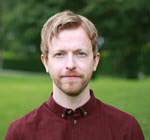
Helge Årsheim has a PhD from the University of Oslo, where he currently works as a Post-Doctoral Fellow at The Faculty of Theology. His first book, Making Religion at the United Nations(under publication by DeGruyter), examines the genealogy and current approaches to religion at the United Nations, with a particular emphasis on four committees set to monitor international human rights treaties. He is a member of the Oslo Coalition on Freedom of Religion or Belief, the correspondent for Norway at the EUREL network, and founding editor of the scholarly Religion: Going Public blog. His current research explores the ways in which religion travels across different levels of governance in international and domestic legislation and jurisprudence, ranging from refugee status determination procedures to zoning regulations, prisons and the governance of indigenous peoples’ rights.
Prof. Marjo Buitelaar
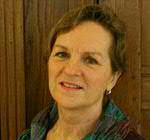
Marjo Buitelaar is full professor Contemporary Islam at the faculty of Theology & Religious Studies at the University of Groningen, The Netherlands. Her research interests focus on Islam in everyday life, narrative identity construction and migration. She is programme leader of an interdisciplinary research project on modern articulations of pilgrimage to Mecca. Previous research projects concerned ethnographic studies on the hammam (public bath) and the fasting month Ramadan in Morocco, and a life story project about the upward mobility of daughters of Moroccan migrants to the Netherlands. She is one of the lead educators of the MOOC Religion & Conflict. Her most recent (co-edited) books are: Negotiating Autonomy and Authority in Muslim Contexts(2103); Religious Voices in Self-Narratives(2013); Hajj: Global Interaction through Pilgrimage(2015).
Dr Elisabetta Costa

Dr Elisabetta Costa is a media anthropologist who investigates the uses and consequences of communication technologies on people's everyday life in Italy, the Middle East, and Turkey. She is an Associate Professor at the Department of Communication Studies at the University of Antwerp. She is the author of Social Media in Southeast Turkey(UCL Press 2016) and several other book chapters, and the co-author of How the World Changed Social Media (UCL Press 2016). Her articles have appeared in Ethnos, Global Perspectives, New Media & Society, the Middle East Journal of Culture and Communication, and Oriente Moderno.
Dr Ana Fernández-Aballí Altamirano
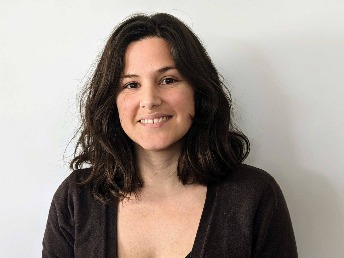
Dr. Ana Fernández-Aballí Altamirano is a Marie Curie Fellow at the Centre for Religion, Conflict and Globalization. She specializes in participatory action research (PAR) and explores the intersection of ontological diversity, environmental education, and policymaking. Her current project, ODEEN: Ontological Diversity in Environmental Education, examines how different worldviews influence ecological engagement and sustainability practices. She holds a BA in Economics and an MA in Communications. She earned her PhD from Universitat Pompeu Fabra, where she developed and applied Paulo Freire’s epistemological framework to community development. She was awarded the Extraordinary PhD Award for her research. Before joining the University of Groningen, she was a postdoctoral researcher at ISOR, the Research Group in Sociology of Religion at Universitat Autònoma de Barcelona and lecturer at Pompeu Fabra University. She has also worked extensively in international cooperation, community-based research, and project development, coordinating numerous EU-funded initiatives on education, social inclusion, and climate justice. Her work spans collaborations with grassroots organizations, international NGOs, and religious and advocacy groups across Latin America and Europe, particularly Cuba and Spain, focusing on interculturality, environmental awareness, and social transformation.
Dr Simon Glendinning
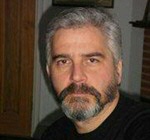
Dr Glendinning has a BPhil and a DPhil in Philosophy from Oxford University. He is Reader in European Philosophy and Director of the Forum for European Philosophy in the European Institute at the London School of Economics. Dr. Glendinning's main research interests concern the religious roots of Europe’s modern cultural identity. Three recent journal articles – ‘Japheth’s World: The Rise of Secularism and the Revival of Religion Today’, ‘The End of the World made with Men in Mind’ and ‘Three Cultures of Atheism: On Serious Doubts about the Existence of God’ – develop a sustained critique of the conception of European modernity that underlies standard construals of the decline of theism in Europe today.
Dr Ton Groeneweg

Dr Ton Groeneweg has a background in literary studies and philosophy, and holds a PhD from Leiden University. For the past fifteen years, he has been working in the development sector, with a special focus on the interaction of religion and development issues. He is presently working at the Asia program and as policy officer for religion and development at the organization Mensen met een Missie.
Nathan Harrison-Clarke
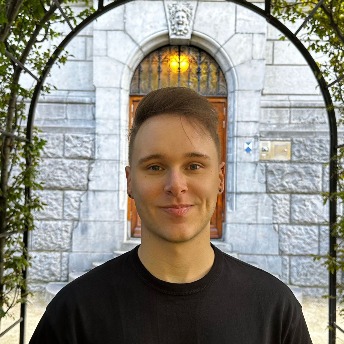
Nathan Harrison-Clarke is a sociologist whose research focuses on the intersection of lived religion, sexuality, and gender. He is also interested in the influence of religious leaders within these dynamics. Nathan is a PhD researcher at the University of Nottingham, where his project examines the lived experiences of LGBTQ+ Buddhists in Britain. From September 2023 to December 2024, he spent six months at the University of Groningen as a research assistant at the Centre for Religion, Conflict, and Globalization under the supervision of Kim Knibbe. In addition to his academic work, he is the founder of The PhD Place, where he collaborates with leading publishers and innovators in academic research to support and empower postgraduate researchers.
Dr Suzanne Klein Schaarsberg

Dr Suzanne Klein Schaarsberg is a lecturer at the cluster International Relations and International Organization at the University of Groningen. Suzanne has received her PhD in International Politics from Aberystywtyh University in 2021. She specializes in contemplative activism and thinks through the implications spiritual protest movements have for the way we think about politics, subjectivity and change. She is specifically interested in interconnections between esotericism, practices of world-making and international politics.
Dr Vlado Kmec

Vlado Kmec is member of the research clusters Religion, Peace and Security as well as Religion and Global Institutions. As a scholar trained in international relations, peace and conflict studies, sociology, anthropology, religious studies and theology, Vlado researches various intersections of religion, social issues and international affairs. He offers expertise in religion and migration; religion in conflict and peacebuilding; ethnic and religious conflicts; religion and international relations; mediation and negotiation; the United Nations peacekeeping and peacebuilding, and the EU Common Security and Defence Policy. He studied at the University of Cambridge, Trinity College Dublin, Georg-August University in Göttingen, Humboldt University Berlin, University of Ottawa, Comenius University in Bratislava, Eberhard Karls University in Tübingen, and Friedrich-Alexander University in Erlangen/ Nürnberg. Vlado’s publications include 'UNISFA - United Nations Interim Security Force for Abyei' in theOxford Handbook of UN Peacekeeping Operations (eds. Koops et.al 2015), and 'Religion as a Response to the Experience of Immigration: The Irish Case' in Religion in Times of Crisis (Ganiel, Monnot and Winkel 2014).
Dr Luca Mavelli
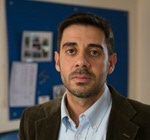
Dr Luca Mavelli is Senior Lecturer in Politics and International Relations at the University of Kent, UK. Prior to this, Luca was a lecturer at the University of Surrey, an ESRC Postdoctoral Fellow at the University of Sussex, and held teaching positions at the University of Queensland, Australia and the University of Canterbury, New Zealand. His research focuses on questions of religion, secularity, postsecularity, security and political violence in international relations. He is the author of Europe’s Encounter with Islam: The Secular and the Postsecular (Routledge 2012), and the co-editor of The Postsecular in International Relations (2012 Special Issue of the Review of International Studies ) and Towards a Postsecular International Politics: New Forms of Community, Identity, and Power (Palgrave, 2014). His articles have appeared in the European Journal of International Relations , Review of International Studies, Millennium: Journal of International Studies , International Politics , Critical Studies on Terrorism , Journal of Religion in Europe , and Teaching in Higher Education .
Dr Méadhbh McIvor

Méadhbh McIvor is a Lecturer in Social Anthropology at the University of Manchester, where her work explores the state’s shaping of, response to, and interaction with religious practice. Prior to her time in Manchester, she held a Junior Research Fellowship at Pembroke College, Oxford, and taught anthropology and religious studies at University College London and the University of Groningen. Her first book, Representing God: Christian Legal Activism in Contemporary England, was published by Princeton University Press in October 2020.
Dr Karin Neutel

Dr Karin Neutel is a fellow of the Sexuality, Gender and Multiple Modernities cluster. She is Lecturer in the Department of Jewish, Christian and Islamic Origins at the University of Groningen. Her research focusses on early Jewish and Christian ideas about gender, sexuality, family and community and their contemporary reception. She is particularly interested in male circumcision and the controversies surrounding this practice, both in Antiquity and today.
Dr Atalia Omer

Dr Atalia Omer is an Associate Professor of Religion, Conflict, and Peace Studies at the Kroc Institute for International Peace Studies and the Keough School of Global Affairs at the University of Notre Dame. Her research focuses on religion, violence, and peacebuilding as well as theories and methods in the study of religion. She is a 2017 Andrew Carnegie Fellow working on a book tentatively titled Global Religion, Peacebuilding and the Perils of Development: Beyond Neoliberalism and Orientalism. She is the author of Days of Awe: Reimagining Jewishness in Solidarity with Palestinians (University of Chicago Press, forthcoming) and When Peace Is Not Enough: How the Israeli Peace Camp Thinks about Religion, Nationalism, and Justice (University of Chicago Press, 2013). She is also a co-editor of The Oxford Handbook of Religion, Conflict, and Peacebuilding (Oxford University Press, 2015) and a co-author (with Jason A. Springs) of Religious Nationalism: A Reference Handbook (ABC-CLIO, 2013). Omer has published articles in various peer-reviewed journals including the Journal of the American Academy of Religion, The Journal of Religious Ethics, Soundings, The Journal of Political Theology, The Study of Nationalism and Ethnicity, and The International Journal of Peace Studies.
Dr Javad Taheri

Dr Javad Taheri is a philosopher of religion specialising in comparative philosophy of religion. His research focuses on the intersection of Islamic and Christian philosophies, with a particular emphasis on the philosophy of religious language. He also conducts studies on interreligious relations, addressing themes such as interreligious understanding, disagreement, and conflict. An additional area of his scholarship is the cognitive science of religion. Currently, he has affiliation with the University of Groningen’s Faculty of Religion, Culture, and Society. In addition to his research work, Javad lectures on topics including comparative philosophy of religion, Islamic philosophy, and aspects of Muslim societies.
Dr Jelle Wiering

Jelle Wiering is a cultural anthropologist who's main interest lies in the field of religious studies. Currently, he works as a PhD researcher at the University of Groningen in a project that focuses on the intersection of religion, secularism, and sexuality in the Netherlands, and is led by Kim Knibbe. Previously, he wrote a thesis on Western Buddhists, at the University of Amsterdam, and a thesis on Dutch pilgrims traveling to Santiago de Compostela, both of them based on empirical research.
Dr Lars de Wildt

Lars de Wildt is assistant professor in media and cultural industries at the Centre for Media and Journalism Studies, University of Groningen. He studies how media cultures and industries construct contemporary worldviews, and broadly how media make belief. Examples are how media industries construct 'global' culture and how local audiences consume it; how online conspiracy theorists talk among themselves; and how Western game developers sold religion to secular audiences.
His first book, The Pop Theology of Videogames: Producing and Playing with Religion was published Open Access with Amsterdam University Press. Lars is currently part of the AHRC-funded project "Everything Is Connected: Conspiracy Theories in the Age of the Internet," and is working on a project about Western developers' imaginations of Chinese gaming audiences. For more, see lars dewildt.eu.
Communications & Logistics Officer
Floor Zwaagstra

Floor Zwaagstra is student assistant for the Centre, providing organisational and secretarial support such as updating the blog, website, and social media pages, helping to organize events, and communication. She obtained her bachelor’s degree in humanities at the University College Groningen, and wrote her thesis about British post-war anti-communist sentiment and propaganda, specifically concerning George Orwell’s Animal Farm. She is now following the research master track at the faculty of Theology and Religious Studies, also in Groningen, where her main focus lies in the use of religious texts and objects as a tool of power.
| Last modified: | 06 February 2025 2.03 p.m. |
